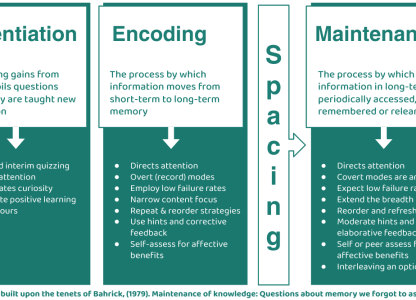Bahrick’s proposal of a “two-phase process,” of acquisition (or encoding) and maintenance clearly applied to the rhythms of teaching in schools, possibly in other education environments too. To that I added a third phase, a potentiation phase. So we have two questions to answer.
What does this look like in the classroom?
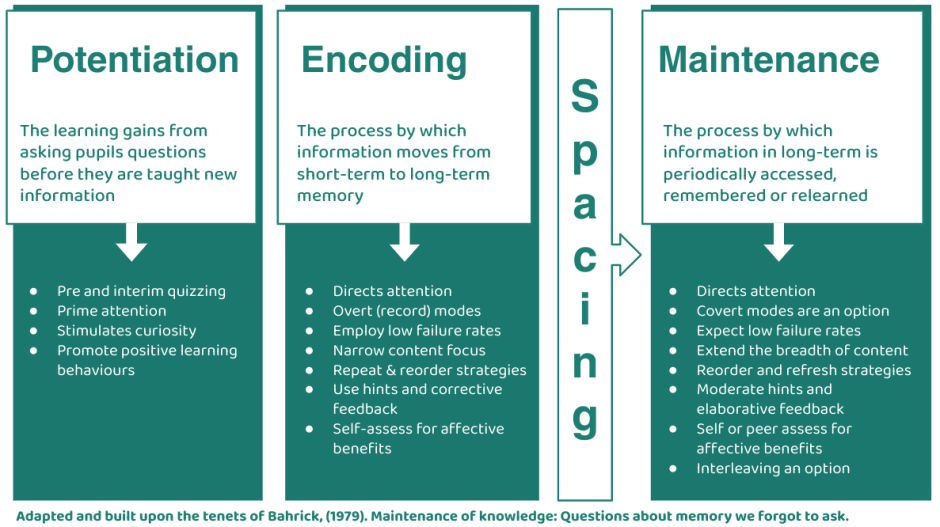
There are numerous retrieval strategies to select from. Pick your potion or mix and match retrieval strategies (questions, quizzes, concept maps or brain dumps) and various knowledge categories, some pairings are more complimentary than others. Then there are subject content nuances, education environments, age ranges, prior attainment profiles… so arbitrarily, let’s describe a class I am currently teaching.
Year 8 mixed prior attainment, English class – quizzing substantive knowledge,
Next term: Charles Dickens – A Christmas Carol
Potentiation
Potentiation at the start of the unit or sequence of lessons: In search of happy accidents, (unknown curriculum connections) revealing prior knowledge including misconceptions, reinforcing known curriculum connections?
Brain dump and connect – all that you know about Victorian England? Brain dump, pair and share? Dates. Names. Places. Image(s).
- 12+ Going for gold.
- 8+ Going for silver
- 4+ Going for Bronze
- 2+ At least you were at the Olympics
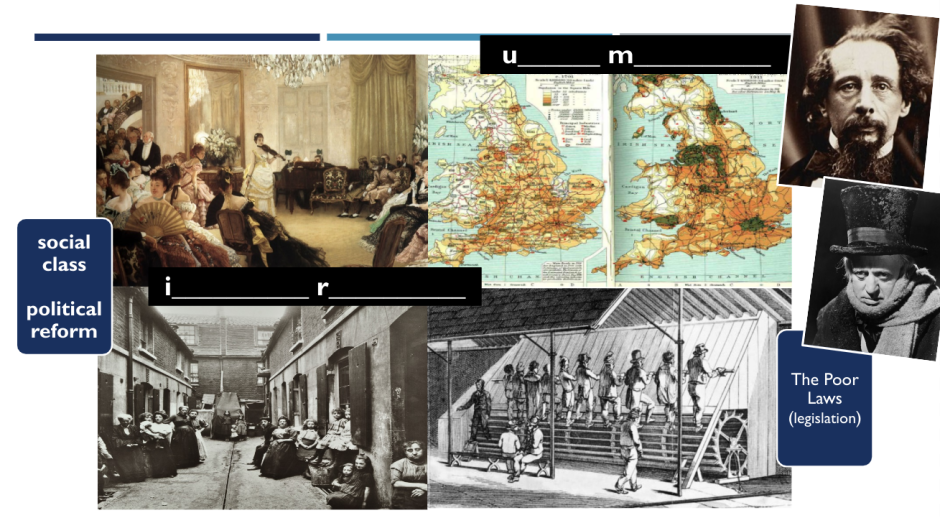
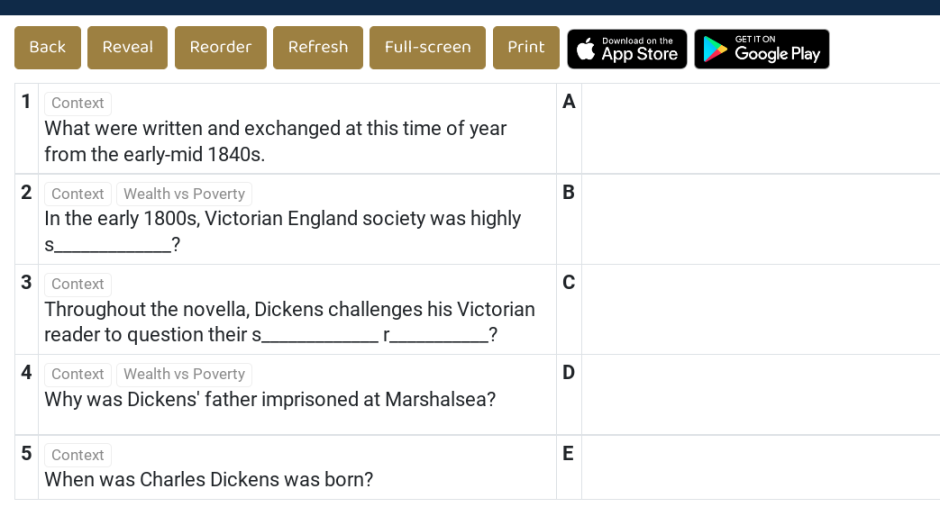
Acquisition
Tracking plot line or introducing explicit vocabulary by section, or accumulatively. Combining plot and vocabulary. Cloze activities with cues.
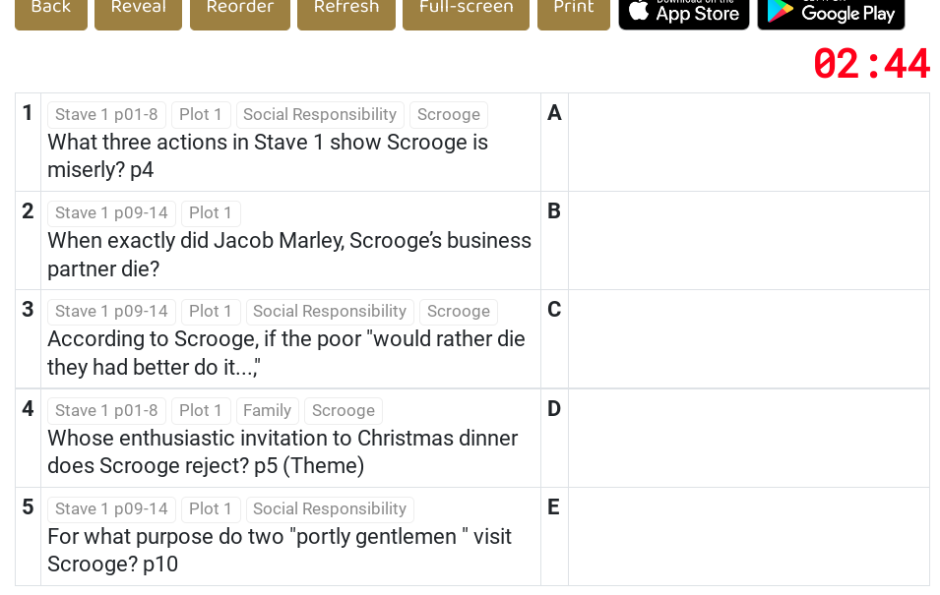
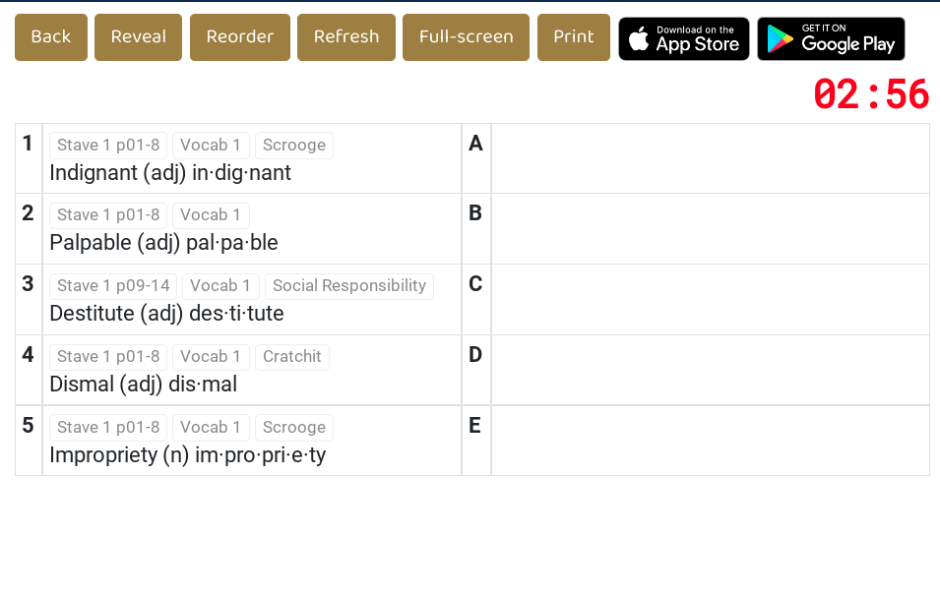
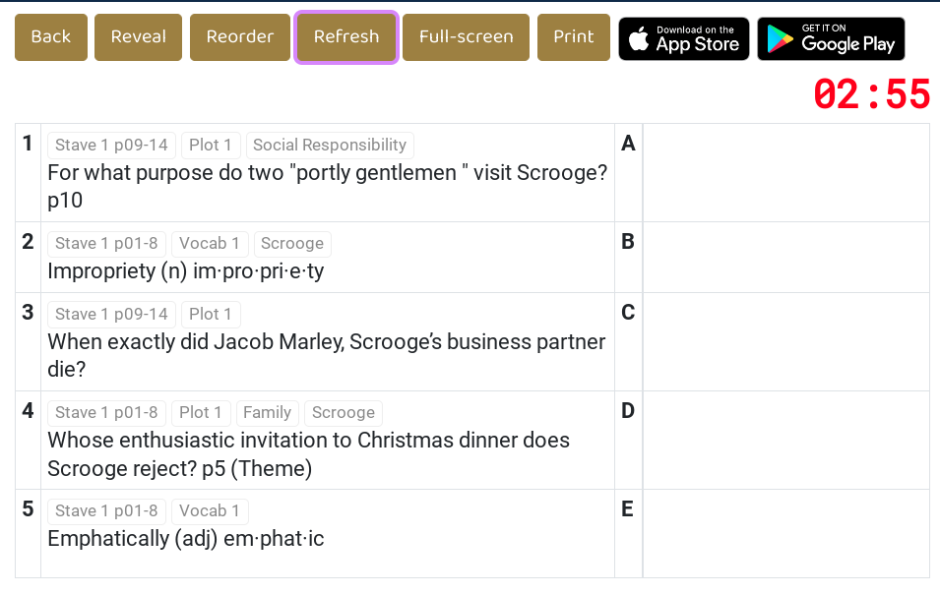

Maintenance
A greater breadth and depth on knowledge, in less time. Investigating themes eg wealth and poverty. Removing cues / hints. Cloze activities without cues.
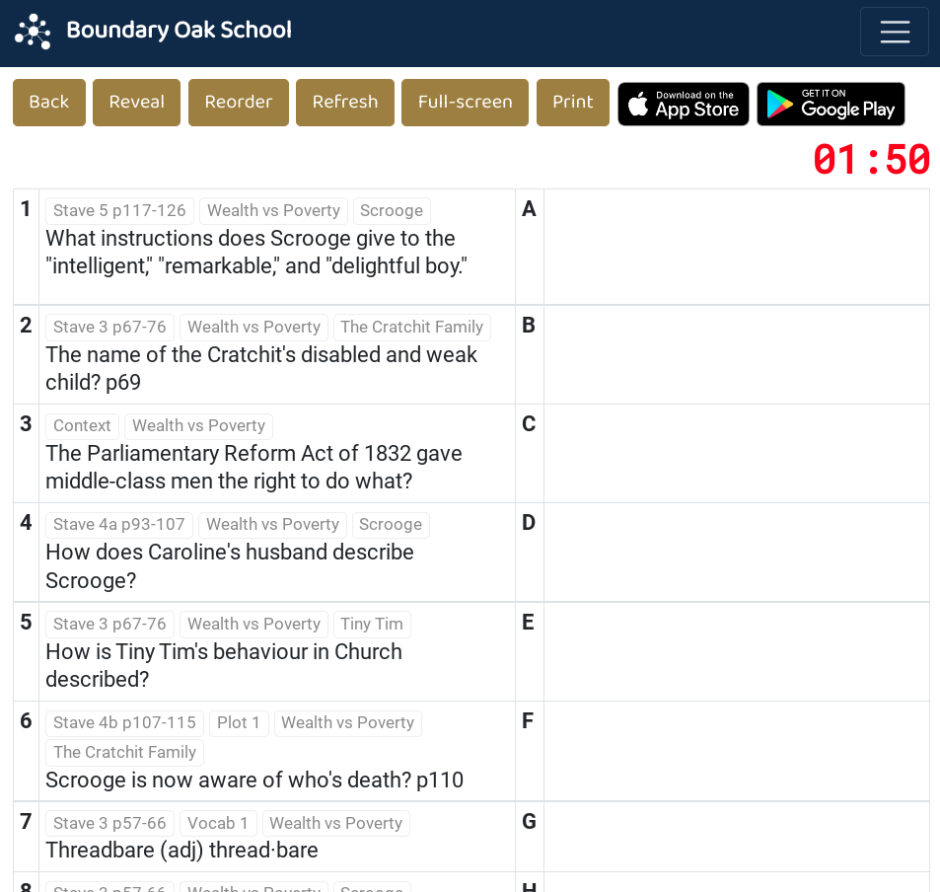
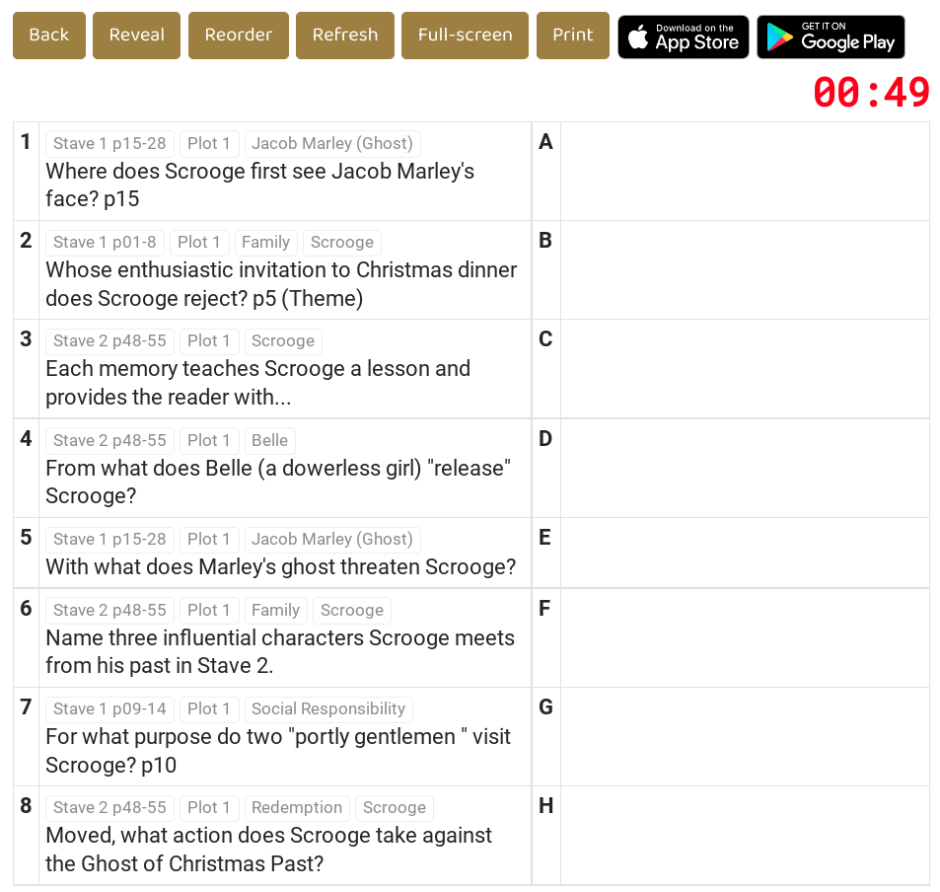
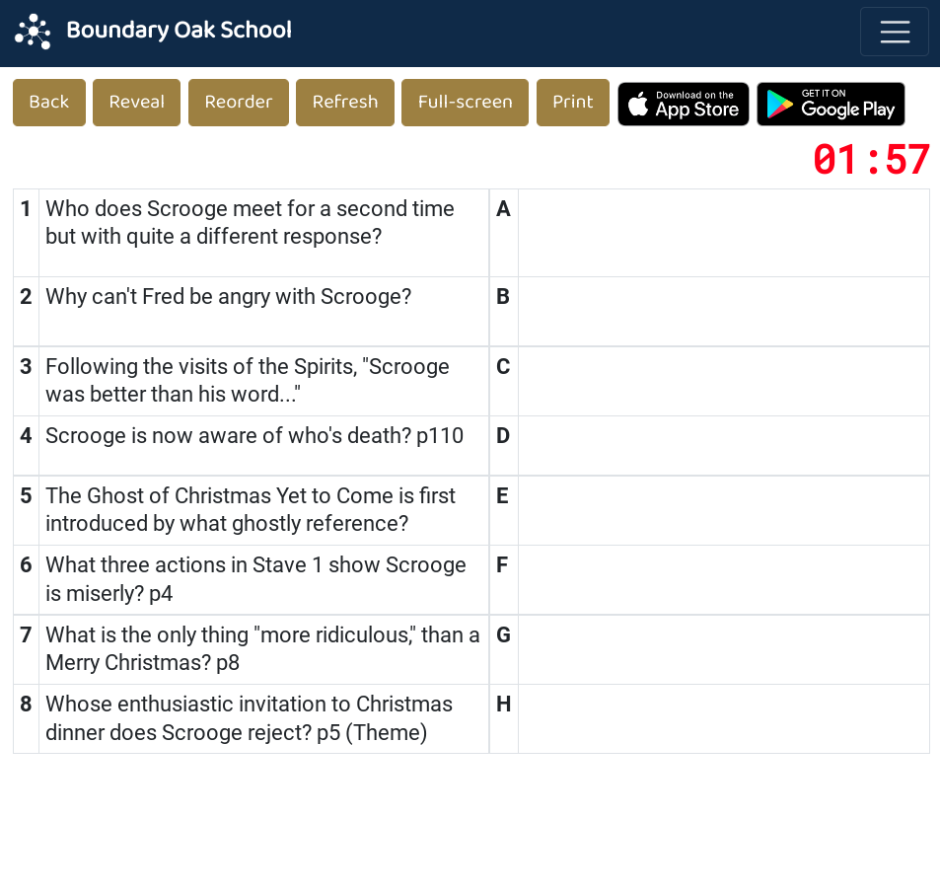
How do we leverage these gains for all pupils?
Routined and expected quizzing. High expectations. Forewarn students that it is not the easy option. Outline ‘how’ and ‘why,’ to reinforce knowledge and recognise and evidence success to promote belief and commitment.
Plan out of class learning for spaced retrieval opportunities. (KBCP model).
Direct attention – through use of the timer, through independent quizzing, self-assessment marking and corrections. The latter is also metacognitive.
Accessibility of the knowledge, digital, hard copy, knowledge organisers, shares responsibility for the learning with the student.
Evidence their learning, to make the second meso-cycle commitment even stronger.
Research into practice
It is not only Bahrick’s research that bothers me, but Dr Graham Nuthall’s work on classroom learning, Dr Katherine Rawson’s on potency of relearning, the modest consideration for learner motivation and metacognition highlighted by Dr Bridgid Finn, and Dr Michelle Rivers, and of course on Dr Eglington’s research on success rates and learning efficiency – keeps me busy.

